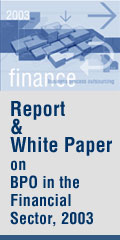|
|
IMF Welcomes Comprehensive European Response to Financial Crisis
October 21, 2008:
The International Monetary Fund (IMF) today said that even though the global financial crisis will cause a sharp deceleration of economic activity, the comprehensive crisis management actions being undertaken should allow Europe to avoid a worse outcome.
In its October 2008 Regional Economic Outlook for Europe (REO), the IMF projects activity in advanced European economies to stagnate in the near-term with growth expected at 1.3% in 2008 and 0.2% in 2009. While these projections were finalized before the crisis reached systemic proportions in early October, they remain broadly valid, even though some of the downside risks have materialized.1 In particular, emerging European economies are now likely to grow at a somewhat slower pace than the 4.3% in 2009 anticipated in the report.
The IMF's baseline scenario for Europe's economic outlook relies on successful containment of the financial crisis. "Times are no doubt extraordinarily uncertain, but we are now seeing the concerted response that demonstrates policymakers' awareness that the global crisis needs a global response.
For Europe, this crisis provides a catalyst for improved cross-border coordination, and we encourage European leaders to follow up with bold steps on their recent commitment to concerted and coordinated action, to resolve this crisis swiftly," said Alessandro Leipold, Acting Director of the IMF's European Department.
Policies will also need to nurture the economic recovery. The IMF projects inflation to drop to levels below central bank objectives in most of Europe's advanced economies in 2009. "With upside risks to inflation rapidly dissipating, the recent concerted easing of monetary policy was appropriate and there is scope for further easing going forward. Meanwhile, the provisions of the Stability and Growth Pact-which incorporate greater flexibility than is often thought-will allow fiscal policy to cushion the downturn," said Leipold.
For their part, Europe's emerging markets are also feeling the strain. They will need to respond quickly to any shortfall in capital flows that may arise, including by using reserves and strong fiscal positions when such buffers exist. Contingency plans should be drawn up to deal with hard landings or to mitigate the adverse effects from the crisis on banks and firms. And, Leipold noted, "The Fund of course stands ready to help as needed."
CLICK FOR SPECIAL SECTION ON GLOBAL FINANCIAL CRISIS
IMF sees heightened risks to global financial stability
Global banking industry to see more restructuring & consolidation
Indian Banking sector challenged by domestic, not global, factors
Indian banking system is stable and sound, says RBI Governor
Indian Government sets up group to assess liquidity requirements
US Financial Crisis to indirectly impact Asian banks
Limited impact on Asia-Pacific banks from Lehman bankruptcy
Broader Implications of Lehman bankruptcy and Merrill Lynch acquisition
Subprime Crisis: A Special
CLICK FOR MORE FEATURES & STORIES
|
|


|


